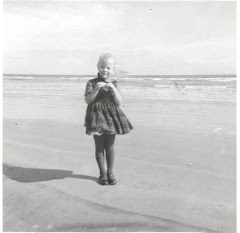The Republican Party's nominee for Vice President, Sarah Palin, is a woman with five children, whose unmarried 17-year old daughter, Bristol, is pregnant. If this isn't an opportunity to have a real conversation about so-called "women's issues," I don't know what is. So, can we talk?
Although many refer to the U.S. as the world's greatest democracy, it remains a political system in which women are not really free. Without control over when (and if) a woman chooses to have children, she does not have control over her life. Reproductive choice is inextricably linked with women's freedom--personally, socially, economically, and politically.
Unfortunately, as evidenced during the past few days, we don't seem to know how to have a real conversation about reproductive freedom. The Bristol and Sarah Palin story has offered us the opportunity for a complex conversation about all of the components of reproductive choice--one that gets beyond simplistic, either/or arguments and moves towards complex, both/and solutions.
A real conversation about reproductive choice would include honest information about human sexuality for girls and boys, for men and women, and would ask why boys/men aren't taught to be just as responsible for birth control as girls/women are. While the Republican Party has pushed for abstinence only education, teen pregnancy rates have grown in the U.S. Further, many adult men still don't consider it their responsibility to be concerned with birth control--that's a woman's job.
A real conversation about reproductive choice would explore why the U.S. has the highest teenage pregnancy rate of any industrialized nation. While the Republican Party has pushed for legislation that seriously limits access to affordable birth control, many young girls lives are increasingly defined by, and confined by, becoming mothers.
A real conversation about reproductive choice would ask us to consider what happens to the life path of a teenage mother who has no option other than to give birth to a child. How does she get the education that will move her beyond hourly wage work? The Republican Party does not want to allow girls/women unlimited choice about when (and if) they have children, but also doesn't want to use government resources to support them if they do. What's wrong with this picture?
A real conversation would ask us to struggle with the "other" side of adoption. Abortion critics never want to discuss the emotional and physical drawbacks of some adoptees experiences--a lifetime spent wondering why you were "given away," or struggling to define a sense of identity, or seeking largely unanswerable questions about your medical history. Certainly, many adoptees are happy with their adoptive families, but there are just as many who are not. It's not an either/or issue, which is why it should be every woman's choice.
The political problem is this. All teenage mothers aren't as lucky as Bristol Palin. All teenage mothers don't have the supportive family that Bristol Palin apparently does. All teenage mothers don't have schools and churches that won't shame them for attending even when they're pregnant. All teenage mothers don't have well-educated families who will ensure that they get the education to develop professionally and economically. All teenage mothers don't have the familial and financial support to help them parent their children when they are still growing themselves. The result of policies supported by the Republican Party that define "family values" solely in terms of a traditional nuclear family is that we continue to make individual women responsible for childcare with little to no network of support.
What about Sarah Palin's story? Is Todd Palin a stay-at-home dad? If he's not, then the "family values" folks have some explaining to do. It's not easy for children to grow up under the public eye and even harder if there isn't a parent available on a consistent basis to help them navigate this minefield. It certainly doesn't have to be a woman, but it has to be someone in the family since the Republican Party doesn't support government-funded childcare.
A real conversation would include uncovering our hidden assumptions about who should be responsible for childcare. It would force us to struggle with the difficult questions about how children are cared for when both parents work outside the home, because the truth is that most Americans don't have a choice. In most American families, both parents must work outside the home.
A real conversation would include an examination of the lives that are decimated by lack of care. We lose so many Americans, so early in their lives, to the hopelessness that leads them to drugs, alcohol, crime, and too often to the prison system. Counted among the losses are the $billions spent in the prison system, but far more important is the loss of human potential. If every American child had reliable emotional and financial support and an equal education, what might our nation look like today?
We won't ever have the answer to that question as long as our policies reflect the assumption of a traditional nuclear family. Further, the model of a stay-at-home mom and a work-outside-the-home-60-hours-per-week-and-rarely-be-available dad is not a guaranteed prescription for a happy family. Unfortunately, that's the model of the "family values" folks, though notably not the model of the Palin family.
In the end, a real conversation about so-called women's issues would help us see why these issues matter to us all--not just to women. Do we want a society, laws, and systems of government, in which only the fortunate few can thrive? Or, do we want a society where it is not only possible, but likely, that we all thrive? If our political leaders had the courage to lead a real conversation, we might actually build a true democracy. So far, we've missed the opportunity for this real conversation. And without it, we may never manifest the democracy that we so often claim we already are--with liberty and justice for all.
Sep 6, 2008
Subscribe to:
Comments (Atom)






